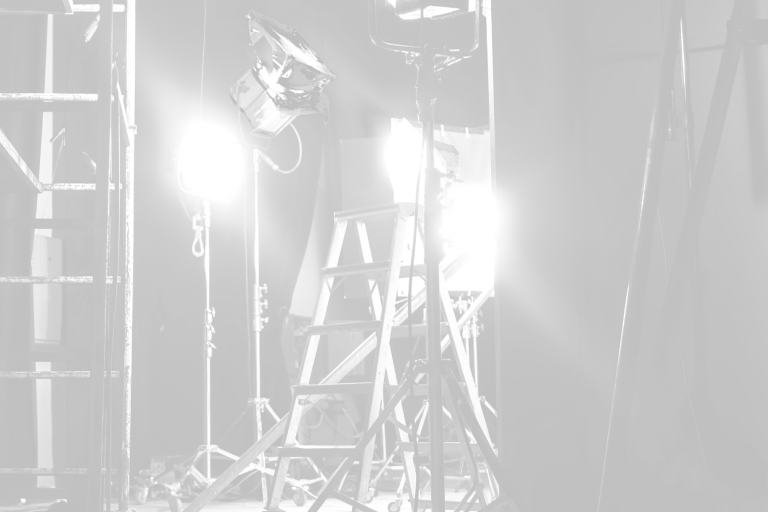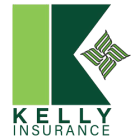DICE PRODUCER INSURANCE
When it comes to film and video production, risks and uncertainties are inherent. From equipment damage and liability claims to unexpected production delays, a myriad of unforeseen circumstances can significantly impact your project’s success. That’s why having the right insurance coverage is crucial to safeguarding your investment. In this article, our specialty insurance brokerage will explore the world of production insurance, with a particular focus on D.I.C.E. Insurance and its importance in mitigating risks within the film industry.
*Call or email us, we are happy to discuss more details about coverage specifics. Always consult your policy/quote for a full view of your coverage details.
CAN'T FIND WHAT YOU'RE LOOKING FOR? SEARCH BELOW






INTERESTED IN GETTING A PRICE?
REACH OUT TODAY
WHAT DOES DICE MEAN? WHAT DOES D.I.C.E. STAND FOR?
DICE is an abbreviation for: Documentaries, Industrial, Commercial, and Educational Films. Typically DICE Producers will have various projects throughout the year. We usually refer to these types of companies as DICE Producers but the public may refer to these as Production Companies.
However and whatever your production company does, be open and honest with your insurance broker so that it becomes their responsibility to do what’s right. If you plan on having hazardous activities or stunts in any of your productions take a look here for some additional considerations and capabilities. Within a DICE Insurance Policy (or D.I.C.E.) there are still very important coverage provisions that should be considered. These types of policies typically last 12 months and can be paid monthly (with a down payment) Talk to your agent about the best plan of attack for your entertainment business.
D.I.C.E INSURANCE POLICIES EXPLAINED
DICE Insurance (also known incorrectly as DICEE Insurance): DICE, an acronym for Documentaries, Industrial Films, Commercials, and Educational Films, is a specialized form of production insurance that caters to the unique needs of these types of projects. DICE insurance policies provide comprehensive coverage for equipment, liability, and other potential risks associated with documentary filmmaking, industrial films, commercials, and educational productions.
*Some insurance carriers may exclude coverage for Documentaries, making the acronym stand for ICE Insurance.
*Call or email us, we are happy to discuss more details about coverage specifics. Always consult your policy/quote for a full view of your coverage details.
Documentary Insurance contemplates insurance for productions related to the capture of factual records or reports. Essentially it is factually programming and should not rely on interpretation and fiction.
WHAT IS PRODUCTION INSURANCE
Production insurance refers to a specialized type of coverage designed to protect filmmakers, production companies, and other professionals involved in the production process. It serves as a safety net, shielding you from financial losses resulting from accidents, property damage, and legal liabilities that may arise during the course of production.
POLICY COVERAGES to CONSIDER
General Liability Insurance for Film Production: This type of insurance protects against third-party claims for bodily injury or property damage that occur during filming. It covers legal fees, medical expenses, and other related costs.
Errors and Omissions (E&O) Insurance: E&O insurance safeguards filmmakers against legal claims arising from defamation, copyright infringement, unauthorized use of titles, and other intellectual property issues. It is especially important for filmmakers as it protects against potential lawsuits that may arise from the content of the film.
Film Equipment Insurance: Film equipment insurance covers loss, theft, or damage to the production equipment used during the filming process. It ensures that your valuable equipment is protected, allowing you to continue production without major financial setbacks.
If your production will be using any equipment, make sure you include inland marine coverage on your DICE Production Policy. Without this type of equipment or property insurance, there will be no coverage for any equipment damage, period.
Instances where Inland Insurance is needed:
- The production will be renting equipment.
- The production will be using an expensive, personally owned, digital video camera with no definitive insurance coverage.
*Call or email us, we are happy to discuss more details about coverage specifics. Always consult your policy/quote for a full view of your coverage details.
General Liability Insurance for Film Production: This type of insurance protects against third-party claims for bodily injury or property damage that occur during filming. It covers legal fees, medical expenses, and other related costs.
Film companies operate in a dynamic and diverse industry where human interactions play a significant role. To safeguard against potential claims arising from employment-related issues, such as discrimination, harassment, or wrongful termination, film companies rely on Employment Practices Liability Insurance (EPLI).
EPLI provides coverage for claims made by employees alleging various forms of workplace misconduct. This specialized insurance protects film companies from potential financial losses, including legal expenses, settlements, or judgments resulting from such claims.
In the film industry, where collaborations and interactions are commonplace, the risk of employment-related claims is present. EPLI acts as a safety net, offering crucial protection against allegations of discrimination, harassment, retaliation, or wrongful employment practices.
By having EPLI coverage, film companies demonstrate their commitment to maintaining a fair and inclusive work environment. This insurance not only provides financial protection but also fosters a culture of respect, diversity, and equal opportunity within the organization.
The cost of EPLI coverage for film companies can vary depending on factors such as the size of the company, number of employees, past employment-related claims history, and risk management practices in place.
In summary, Employment Practices Liability Insurance is an essential component of a film company’s risk management strategy. It safeguards against potential employment-related claims, protects the company’s financial well-being, and promotes a workplace culture that values fairness, respect, and inclusivity.
Workers’ Compensation Insurance: Ensuring Safety and Protection for Film Company Employees
In the fast-paced and dynamic world of film production, the safety and well-being of employees are of paramount importance. To address the unique risks and challenges faced by film companies, workers’ compensation insurance becomes an essential component of their overall production insurance portfolio.
Workers’ compensation insurance provides coverage for employees who sustain work-related injuries or illnesses during the course of their employment. This specialized insurance not only safeguards the welfare of workers but also offers crucial financial protection for film companies.
Film sets can be inherently hazardous environments, with various potential risks ranging from stunts and physical demands to on-location shoots and equipment usage. In such scenarios, accidents can occur, leading to injuries that may require medical attention, rehabilitation, or even time off work.
Workers’ compensation insurance steps in to provide medical benefits, wage replacement, and rehabilitation services for injured employees. By ensuring that employees receive the necessary care and support, this insurance coverage helps facilitate their recovery while minimizing the financial burden on the film company.
Moreover, workers’ compensation insurance protects film companies from potential legal liabilities. In the event of an employee’s injury or illness, this coverage generally prevents employees from filing lawsuits against the employer for damages, as it provides an exclusive remedy through the workers’ compensation system.
Film companies must prioritize the well-being and safety of their employees, and workers’ compensation insurance is a crucial tool in achieving this goal. By having this coverage in place, film companies can demonstrate their commitment to providing a safe work environment, thereby fostering a positive and responsible reputation within the industry.
As with any insurance coverage, the cost of workers’ compensation insurance for film companies can vary depending on factors such as the size of the company, number of employees, previous claim history, and the specific roles and risks associated with film production.
In summary, workers’ compensation insurance plays a vital role in the overall risk management strategy of film companies. It ensures that employees are protected in the event of work-related injuries or illnesses, provides financial support for their recovery, and helps mitigate legal liabilities. By prioritizing the safety and well-being of their workforce, film companies can create an environment that fosters creativity, productivity, and success.
*Call or email us, we are happy to discuss more details about coverage specifics. Always consult your policy/quote for a full view of your coverage details.
Click Here for more information about workers compensation insurance.
Production liability insurance provides bodily injury and property damage coverage in the limits listed on the quote or policy. This coverage can activate if a 3rd party trips over your computer cord at the office, or you forget to shovel your businesses snowy walkway, and someone slips and gets hurt.
Exclusions to consider:
- Errors and Omissions or Distribution E and O
- Stunts & Hazardous Activities
- Auto Liability and Property Damage
- 3rd Party Property Damage
Additional Liability Related Coverages to consider :
- Increased General Liability Limits over $1,000,000
- Umbrella Liability or Commercial Excess Policies
- Sexual Abuse and Molestation Coverage
*Call or email us, we are happy to discuss more details about coverage specifics. Always consult your policy/quote for a full view of your coverage details.
Commercial Auto Insurance: Safeguarding Film Companies on the Move
Film companies are frequently on the move, with transportation playing a vital role in the production process. To protect against potential accidents or damages involving vehicles used for business purposes, film companies rely on Commercial Auto Insurance, including Hired and Non-Owned Auto Liability coverage.
Commercial Auto Insurance provides essential coverage for vehicles used by film companies, including owned vehicles, leased vehicles, or those rented specifically for production needs. This insurance safeguards film companies from financial losses arising from accidents, property damage, bodily injury, or legal liabilities that may occur during business-related vehicle operations.
Hired and Non-Owned Auto Liability coverage specifically extends the protection to vehicles not owned by the film company but used for business purposes, such as rentals or employee-owned vehicles used for company errands. This coverage offers financial protection against third-party bodily injury or property damage claims resulting from accidents involving these vehicles.
Film companies often rely on transportation for equipment, crew, and talent, making Commercial Auto Insurance a crucial aspect of their risk management strategy. By having this coverage in place, film companies ensure that they are protected in the event of an accident, property damage, or potential legal liabilities stemming from vehicle operations.
The cost of Commercial Auto Insurance for film companies can vary depending on factors such as the number and type of vehicles, driving records, coverage limits, and the extent of Hired and Non-Owned Auto Liability coverage.
In summary, Commercial Auto Insurance, including Hired and Non-Owned Auto Liability coverage, is essential for film companies to protect against potential vehicle-related accidents, property damage, and legal liabilities. By having this coverage, film companies can ensure the safety of their operations on the move while minimizing potential financial risks.
Types of Commercial Auto Insurance for DICE Producers:
- Hired and Non Owned Auto Insurance – Our founding member, Franklin B. Kelly would always make sure to discuss Commercial Automobile Liability with every business owner, even when the business doesn’t own a vehicle. Franklin B. was referring to a specific coverage known as Hired and Non Owned Automobile Liability. HNOA Insurance covers your business/your production in the event a non owned auto cause bodily injury or property damage to someone or something.
- example: The director gets to the location before realizing she left her glasses sitting on the air bnb’s coffee table. The director asks her assistant to run to her place and get the glass for her. On the way back from getting the glasses, the assistant rear ends another car. Hopefully it was a minor incident but if not, the production company could be held partially or fully liability for the damages incurred to the other vehicle.
- Hired Car Physical Damage Coverage – It is important you select this coverage along with HNOA if you plan on renting a vehicle for your production. Without these 2 valuable coverages, damage to the rented auto, or grip truck, will not be covered in addition to any liability arises from non owned vehicle use.
- Owned Vehicles – If your business or production company owns vehicles in the name of the business, you should have at least Symbol 7 on all lines of coverage on a commercial automobile insurance policy. Depending on the age of the vehicle of the value, you may consider removing coverage for comprehensive and collision related losses.
*Call or email us, we are happy to discuss more details about coverage specifics. Always consult your policy/quote for a full view of your coverage details.
Film companies operate in a dynamic and unpredictable industry, where unexpected events can disrupt production and result in financial losses. To protect against these risks, film companies rely on Business Income and Extra Expense Insurance.
Business Income Insurance provides coverage for the loss of income resulting from a temporary shutdown or interruption of operations due to covered perils, such as fires, natural disasters, or equipment failure. This insurance compensates film companies for the income they would have earned during the period of interruption, helping to mitigate the financial impact.
Extra Expense Insurance covers the additional costs incurred by film companies to resume or maintain production following a covered loss or interruption. This coverage helps cover expenses such as securing alternative filming locations, renting additional equipment, or hiring temporary personnel to keep production on track.
By having Business Income and Extra Expense Insurance, film companies can ensure that they have the financial resources to overcome unexpected disruptions and resume production without significant financial strain. This coverage provides a safety net, allowing film companies to focus on recovering and getting back to business as usual.
The cost of Business Income and Extra Expense Insurance for film companies can vary depending on factors such as the size of the company, projected income, the nature of the film projects, and the desired coverage limits.
In summary, Business Income and Extra Expense Insurance are crucial for film companies to protect against financial losses caused by interruptions to their operations. By having this coverage, film companies can mitigate the impact of unforeseen events and maintain financial stability during periods of temporary shutdowns or disruptions.
DOES YOUR PRODUCTION INCLUDE STUNTS?
Make sure your insurance agent is aware of any hazardous activities filmed during production.
Use of Animals
Movie Boats
Vehicle Chases
Fight Scenes
Water & Swimming
Stunts and Falls
Explosions
Fire or Pyrotechnics
Hiking or Climbing
Significant Travel
Squib or Blank Use
Aerial Video or Photos
A FEW REASONS TO PURCHASE PRODUCTION INSURANCE OR DICE INSURANCE
Importance of Production Insurance: Production insurance plays a vital role in safeguarding your investment and mitigating risks associated with filmmaking. Here are some key reasons why it is crucial for production companies and filmmakers:
Financial Protection: Production insurance provides financial protection against unexpected losses, such as equipment damage, set accidents, or lawsuits. It ensures that you won’t bear the entire burden of these expenses, potentially saving your project from financial ruin.
Peace of Mind: Having the appropriate insurance coverage allows you to focus on your creative vision without constantly worrying about potential risks. It provides peace of mind, knowing that you are adequately protected should any unforeseen circumstances arise.
Compliance with Contracts and Legal Requirements: Insurance is often a requirement in contracts with distributors, venues, and other industry professionals. By having the necessary coverage, you can fulfill these contractual obligations and ensure that your project moves forward smoothly.
Professionalism and Credibility: Investing in production insurance demonstrates professionalism and credibility. It shows potential investors, partners, and collaborators that you take risk management seriously, enhancing your reputation in the industry.

